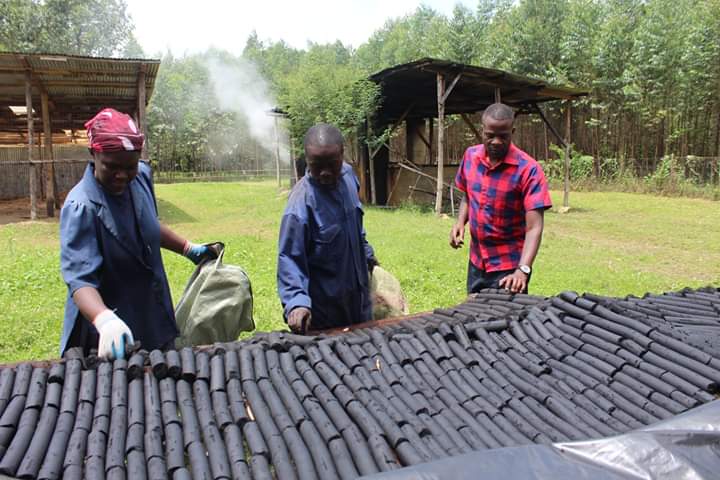By Fatin El-Kabashi Abdullah Ibrahim
 Fatin volunteered with TCP this summer providing pro bono legal advice, researching and blogging about TCP’s work in East Africa. She is a recent Georgetown Law graduate. Fatin previously worked as a finance lawyer in London, UK. She is passionate about supporting entrepreneurship and innovation in developing countries and is a longstanding environmentalist. She looks forward to continuing her collaboration with us and supporting our sustainability focussed work.
Fatin volunteered with TCP this summer providing pro bono legal advice, researching and blogging about TCP’s work in East Africa. She is a recent Georgetown Law graduate. Fatin previously worked as a finance lawyer in London, UK. She is passionate about supporting entrepreneurship and innovation in developing countries and is a longstanding environmentalist. She looks forward to continuing her collaboration with us and supporting our sustainability focussed work.
Clean Fuel, Charcoal Briquettes and COVID-19
The COVID-19 pandemic and associated lockdown has proven to be a double-edged sword, disrupting lives and livelihoods across the world, including in Africa. The pandemic has produced both overwhelming challenges as well as golden opportunities for producers and distributors of biomass charcoal briquettes in Uganda and Kenya, as our recent research shows.
We conducted a series of telephone interviews with a selection of charcoal briquette producers well known to The Charcoal Project (“Participants”) from Uganda and Kenya in late August. The aim of this research was to better understand the on the ground situation facing our Participants and to share with the TCP community, how our Participants have been meeting these challenges and making use of the unexpected opportunities that have emerged. We hope that by sharing the experiences of this group of Participants, our research will be beneficial to other TCP participants to inspire and encourage them in these very difficult times.
Findings
The report outlines the biggest challenges the charcoal briquette producers have faced on the ground due to the impact of the COVID-19 pandemic in Uganda and Kenya and how they have responded to date. The nine Participants who were interviewed touched on a range of issues caused by the pandemic, which have impacted their briquette and clean cook-stove production, distribution and sales operations.
The results showed a wide variety in responses sometimes divided along urban/peri urban/rural lines in Kenya and Uganda. However, there were certain shared hardships as well as opportunities that our Participants have described to us which we presented.
COVID-19 restrictions impacted the Participants in four key areas: 1) production of charcoal briquettes, 2) supply of raw materials, 3) customers, and 4) business model, which we will look at here in more detail.
Production
As you would expect, the COVID-19 related lockdowns, curfews and restrictions had a negative impact on production for most producers of charcoal briquettes. Many Participants identified that, at height of lock down, they had to reduce the number of workers in the charcoal briquette factories and workshops due to social distance rules and need to provide PPE to workers. This impacted production by reducing the output volumes and making it difficult to fulfil orders.
Transportation restrictions also impacted raw material procurement from suppliers, resulting in delays in fulfilling orders on time. In terms of the impact on employees, many participants had to cut salaries or let some employees go due to the drop in demand for charcoal briquettes or the lock down restrictions which curbed production in briquette factories and workshops. Betty Z. Kaddu, Best of Waste, Uganda, explained that “during the lock down, operations were disrupted due to lock down rules so employees had to work in shifts.”
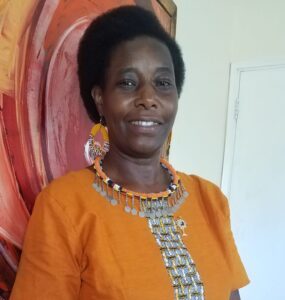
Dorothy Otieno, Nyalore Impact, Kenya
As Dorothy describes their situation: “once the full lockdown was in force Nyalore lost savings due to ongoing operating expenses and was unable to fulfill orders on time made pre-lock down because they could not get raw materials from Nairobi due to restrictions on movement and factory work”.
Raw Materials
Many producers told us suppliers had increased the price of raw materials during the lockdown. In particular, chardust increased in price and became less available in both Uganda and Kenya. There was also a reduction in the availability of raw material like bagasse as sugar cane processors also reduced their production schedules.
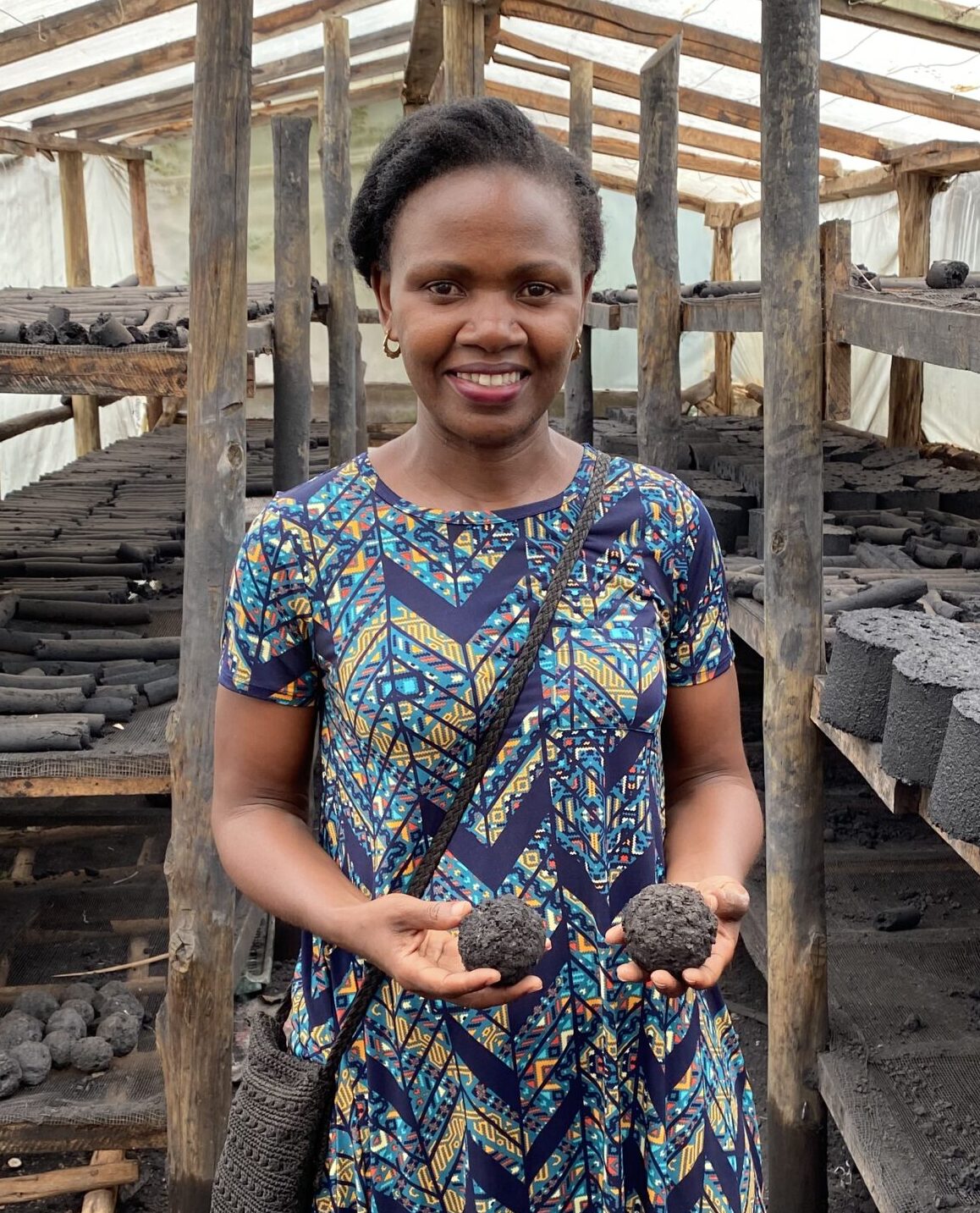
Betty Z. Kaddu, Best of Waste, Uganda
"By the time the lockdown was eased, more households were making briquettes at home”. This was a double-edged sword, as it reduced the demand for briquettes and also “impacted the supply of charcoal dust as suppliers found they made more from selling to smaller producers”. “Charcoal dust supplies became more limited and led to a price hike of up to 20-30%”
GreenBio Energy Uganda’s Ziwa Hillington also had similar difficulties with securing chardust supplies, mainly due to the lockdown related transport restrictions and increases in prices by suppliers. The raw material supply issues eventually eased but still “it depended on whether you have cash and can pay quickly”.
Customers
The two biggest trends related to sales and payment terms. Most charcoal briquette producers experienced a dropoff in sales volumes due to the closure of many business and institutional customers related to the lockdown. Hotels and restaurants were hit hard by the drop in the tourism sector and schools have still not reopened in many areas. These businesses and schools, which often buy substantial volumes of briquettes, are only just starting to reopen, and will take a long time to recover their former activity levels. Other businesses and institutions, which remained open but had to reduce their operations as they moved to remote work, also reduced their demand for briquettes.
In addition to closures of businesses and institutions, other Participants reported that some of their rural household customers were reverting to traditional fuels like wood and local charcoal as a cheaper alternative to briquettes. Dorothy Otieno, Nyalore Impact Kenya, told me the “majority of household customers are reverting to firewood. With children at home, many parents are sending them out to collect free firewood”.
And, producers like David Nkwanga Adapt Plus, Uganda, experienced a significant drop in orders as “NGO organisations working with refugee communities in Uganda which have not been able to operate as normal”.
However, this downward trend in sales was not consistent across the board, as several Participants reported the opposite trend. Those Participants told us their briquette and cookstove sales had actually increased persistently during the lockdown. Many attributed this increase in household orders to households growing in size as families move in together. Others note that as more people are at home, children being off school etc, households are cooking more. Some Participants even slightly increased their briquette prices due to this demand spike.
Ecolibrium’s Douglas Manyonyi, “as soon as I produce charcoal briquettes, they sell out of stock immediately”. He says, “demand remains high – and has been increasing throughout the pandemic”.
Another interesting trend was the changes Participants made to payment terms to accommodate customers inability to pay upfront for briquette orders. Most participants have told us they have renegotiated payment terms with their customers. The most common approach has been to offer payment credits/deferred payment plans so customers can pay in installments. While this is beneficial for customer retention, it has put a drain on cash flow for the Participants, so this will not likely be a long term strategy for the producers.
However, the good news is that on the whole it seems that urban household customers are sticking with briquettes as the pandemic has made the importance of respiratory health clear and the benefits provided by briquettes in this area. Although a few customers abandoned briquettes completely, the majority seem to have moved mixing the charcoal briquettes with local charcoal thereby bringing down their overall cost of fuel. The price of traditional charcoal has risen in some urban areas, however, as Joel Oduk of Rattat Energy notes, “Customers have not reverted to traditional charcoal as it is very expensive. Some wanted to revert to firewood, but it is not cheap and is bulky”.
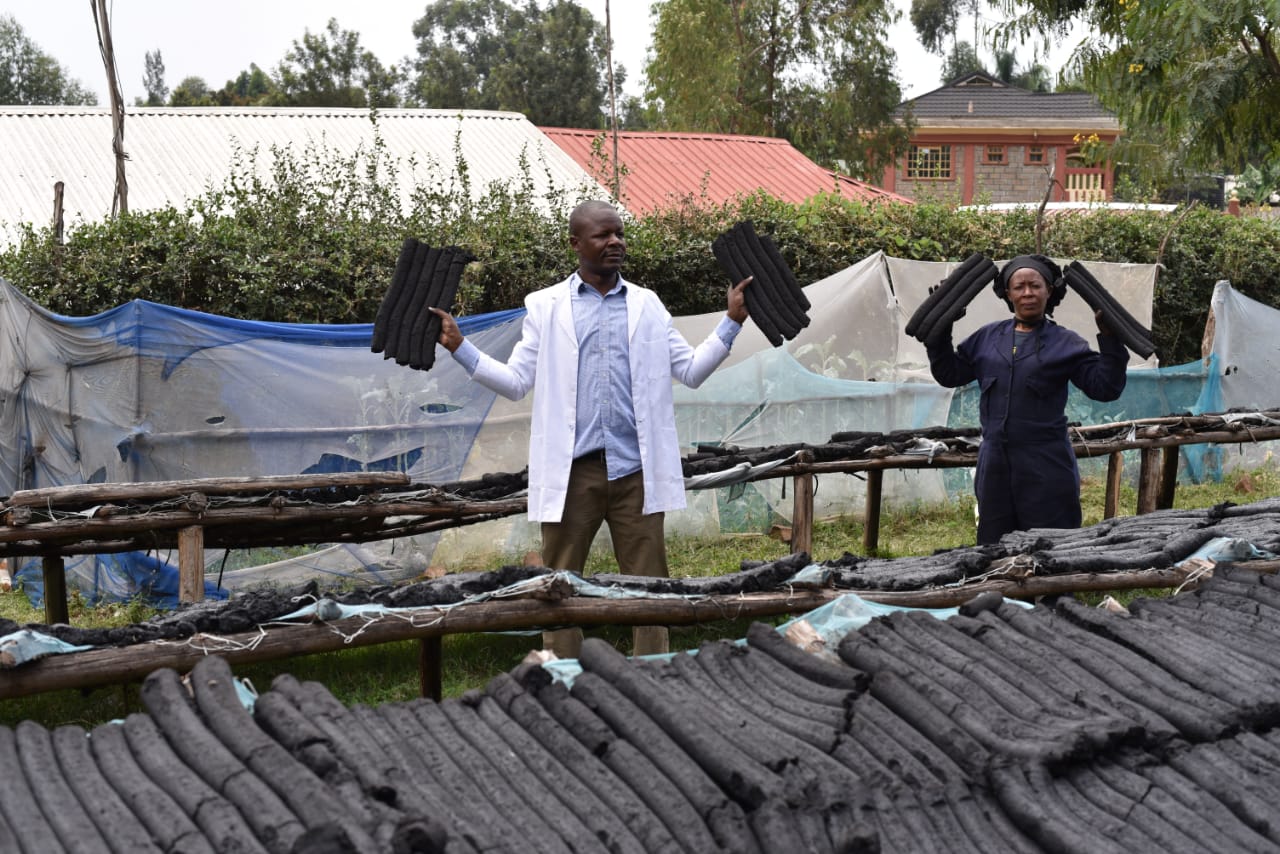
To combat the low demand and orders, some Participants introduced discounts of up to 20% for wholesale customers to encourage them to continue purchasing. Others have planned to offer complimentary products instead of discounts.
Impact on Business Models
The general trend has been the adoption of more flexible pricing models – for example instead of offering discounts, participants are allowing for flexible deferred payment on credit terms or offering complimentary products to incentivise purchases. In addition, producers who are having problems obtaining feedstock are starting to carbonize to guarantee the supply of raw materials. Highlighted below are the pivots in strategy some of these producers implemented.
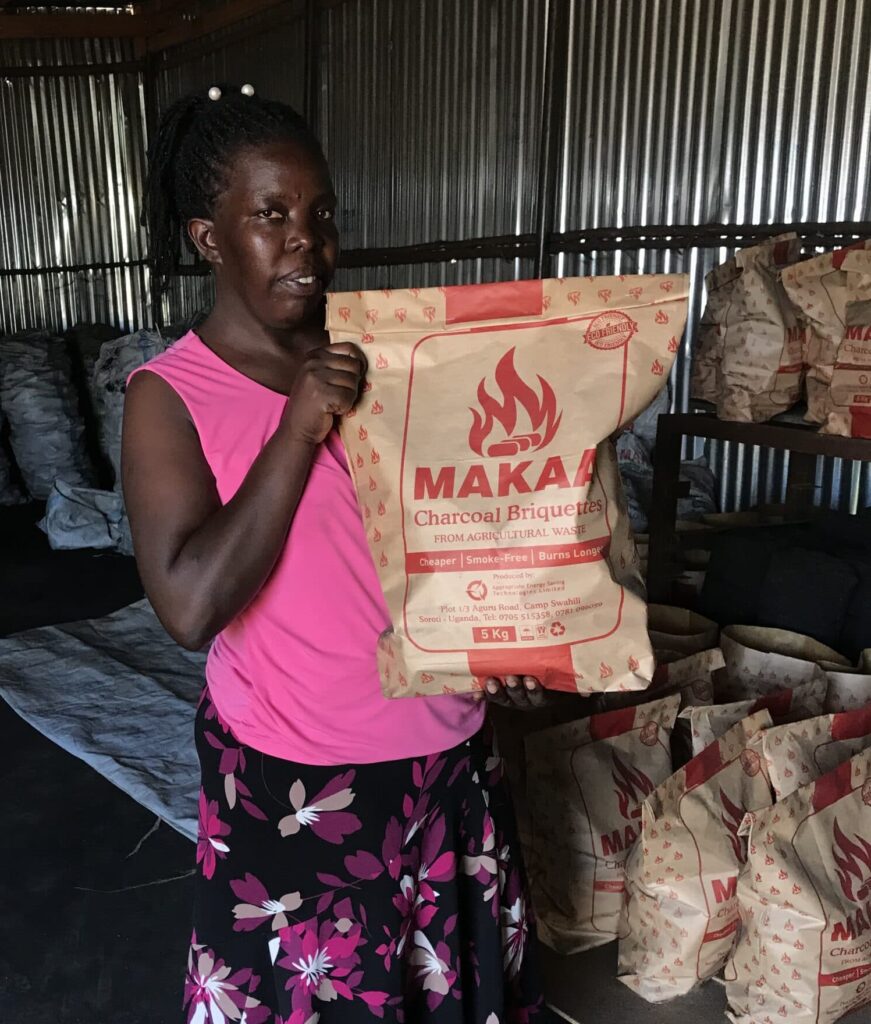
Betty Ikalany, AEST Ltd. Uganda
AEST is currently “re-strategizing and focusing on how to recruit new customers” through direct marketing efforts like street marketing and mobile marketing (driving a truck around to visit and educate communities and market briquettes)”. She says “AEST is also putting together promotion packages like giving a complimentary pack of firelights for customers who buy briquettes or for those buying a cookstove giving a complimentary bag of briquettes”.
Dorothy Otieno Nyalore Impact Kenya, “because of the increase in price of charcoal dust, Nyalore has had to source charcoal dust locally instead”. They started to “develop ways to carbonize agricultural waste which is readily available in Homa Bay as it is very agricultural”
Moza Ahmed, Briq’o’Blaze Kenya “Pre-pandemic we were selling to small kiosks which have been closed for 3 months due to the pandemic and are only now reopening. So we switched to households and grocery kiosks during pandemic”.
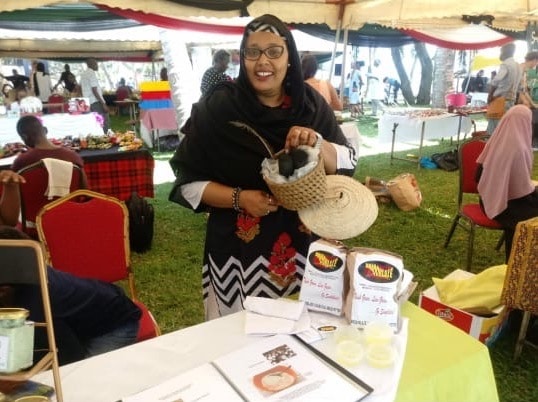
David Nkwanga, Adapt Plus, Uganda “one key thing they are looking at is diversifying the customer base, specifically reducing reliance on institutional customers in refugee settlements”.
Overall Conclusions
Overall, the Participants in the study, for the most part, like many other small businesses during COVID, experienced negative impacts on demand for their products and on their supply chain. On the supply chain side, the increase in the price and shortage of raw material significantly disrupted production for Participants. By the same token, Participants who are distributors experienced price hikes by briquette suppliers, in some cases up to 3x the pre-Covid price. On the demand side, demand was reduced by rural customers reverting to firewood, the closure of institutions (like schools and colleges), the reduced operations of hotels and restaurants.
Despite these disruptions, there were some positive trends that offset the largely negative impacts. Because of the acute supply shocks for certain raw materials, producers have started to shift away from chardust, instead considering other raw biomass like coconut shells and learning how to carbonize themselves to lessen their exposure to suppliers.
Participants report that their household customers have stuck to briquettes on the whole and customers which had reverted to traditional fuels have started to return to briquettes as economic activity picks up. Also, because institutional sales will take a long time to rebound, many Participants have pivoted to serve the household market, and are building a more stable revenue stream over time.
Another positive trend has been the uptick in the use of innovative marketing and outreach techniques by Participants, which has included using social media platforms to advertise their products and designing offers of complementary products like briquette samples, firelighters, cooking oil and basalt to encourage larger orders.
List of Interviewees
We would like to thank each and every one of our Participants for agreeing to be interviewed and for giving up their time to share their individual stories with us. Every interviewee has done an outstanding job in responding to the challenges of these unprecedented times.
A BIG thank you to…
Name of Participant | Name of company and location |
Ziwa Hillington | |
Dorothy Otieno | |
Douglas Manyonyi | |
David Nkwanga | |
Moza Ahmed | |
Betty Ikalany | |
Betty Z Kaddu | |
Joel Oduk | |
Brian Onyango |

